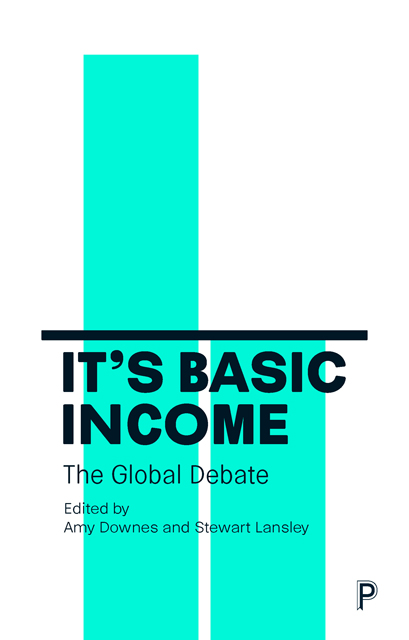37 - Brazil: a basic income experiment as a citizen-to-citizen project
Published online by Cambridge University Press: 11 April 2023
Summary
‘A basic income may be the cheapest and most effective solution for increasing the social capital and the common good of a neighbourhood’
Brazil’s ReCivitas Institute, founded in 2006, is a non-profit, non-governmental organisation that develops social projects with the goal of promoting free enterprise, empowerment and an emancipated citizenry. Among these projects is the Quatinga Velho basic income experiment. This currently runs on the ‘Basic Income Startup model’, the virtual platform for citizen’s governance and digital direct democracy.
The Basic Income social project in Quatinga Velho started in October 2008. The first experimental phase lasted from October 2008 to May 2015. The second and current phase – ‘Basic Income Startup’ – began in January 2016 and is designed to be permanent.
Phase 1: 2008–15
During the period up to 2015, we maintained a monthly payment of an unconditional basic income of 30 reais (US$12) to residents of Vila de Quatinga Velho, São Paulo, Brazil. The first payment was given in person to 27 people and was funded by a donation from the project administrators. In the first six months, after building community trust, enrolment reached 100 people and remained around that figure until the project ended. During this phase, weekly visits were made to the participants’ homes and monthly assemblies were held during which participants self-managed the project, both through collective decision-making about issues relating to the project and to vote on proposals for onboarding new residents.
Since the beginning the project has been independent, driven by volunteer effort, without any corporate or governmental sponsorship. Online fundraising campaigns were maintained throughout the project. All donations were fully allocated to basic income payments. Operational costs were paid by the project coordinators who worked as unpaid volunteers.
Throughout, we collected data and informed participants about the project’s progress through informal conversation. To encourage support and to teach children about the concept of basic income, a mobile book and toy library was assembled. There were visits from scholars and students from foreign universities which, together with ReCivitas’ own reports, compose the record of analyses and results collected through this period. The data and results of the project were included in accounting reports and marketing materials for the project, which helped in the fundraising effort. Despite this, resources were insufficient to continue Phase 1.
- Type
- Chapter
- Information
- It's Basic IncomeThe Global Debate, pp. 193 - 198Publisher: Bristol University PressPrint publication year: 2018



